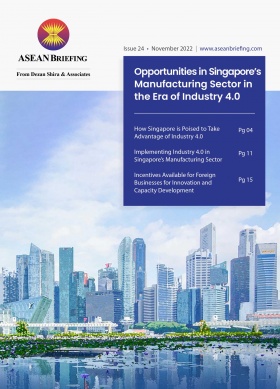How GST Liability is Assessed on Low Value Goods Transactions in Singapore
Goods and services tax is levied on low-value goods that are imported to Singapore. Businesses should identify whether their customers are GST-registered by requesting their GST registration number for each sale that occurs.
Since January 1, 2023, Singapore has imposed the goods and services tax (GST) on imported low-value goods. GST is a value-added tax levied on most supplies of goods and services as well as on imported goods. The current rate for 2023 is eight percent and will be increased again to nine percent on January 1, 2024.
What are low-value goods?
Low-value goods refer to goods imported by air or post that are valued up to and including the GST import relief threshold of S$400 (US$301). Non-digital services, such as online training or coaching where the customer is not at the location where the service is being provided, must also pay GST.
GST registration
The way GST is collected depends on the GST registration status of the customer in Singapore.
If the low-value goods are sent to a GST-registered customer in Singapore, then the obligation to charge GST on the imported goods falls on the GST-registered customer, irrespective of the supplier’s GST status or whether they are local or from overseas.
If the customer is not GST-registered, then the obligation to account for the GST may fall on one of the following persons:
- The supplier makes the direct sale to the customer;
- Transporters – the person that delivers or arranges to delivery the goods to the customer; or
- The electronic marketplace acts as the medium for the supplier to supply low-value goods.
The mentioned entities should determine their GST liability. Local suppliers, transporters, and electronic marketplaces must register for GST if they meet the mandatory threshold, which is as follows:
- Under the retrospective basis – The entity’s taxable turnover for the past 12 months exceeds S$1 million (US$752,000); or
- Under the prospective basis – The entity’s taxable turnover for the next 12 months is expected to exceed S$1 million (US$752,000).
For overseas suppliers, transporters, and electronic marketplaces, the GST threshold is as follows:
- Under the retrospective basis: The entity’s global taxable turnover for the past 12 months exceeds S$1 million (US$752,000) in addition to overseas suppliers of business-to-consumer (B2C) products or services to non-registered GST customers that exceeds $100,000 (US$75,260); or
- Under the prospective basis: The entity’s taxable turnover for the next 12 months is expected to exceed S$1 million (US$752,000) or where the overseas supplier of B2C products or services to non-registered GST customers is expected to exceed $100,000 (US$75,260).
About Us
ASEAN Briefing is produced by Dezan Shira & Associates. The firm assists foreign investors throughout Asia and maintains offices throughout ASEAN, including in Singapore, Hanoi, Ho Chi Minh City, and Da Nang in Vietnam, in addition to Jakarta, in Indonesia. We also have partner firms in Malaysia, the Philippines, and Thailand as well as our practices in China and India. Please contact us at asean@dezshira.com or visit our website at www.dezshira.com.








